The "A Shared Future: Building an Open and Inclusive Economic and Financial System" event—the Tsinghua PBCSF Global Finance Forum 2025, was successfully held in Shenzhen, Guangdong Province, from May 17 to 18, 2025. On the afternoon of May 18, Session XIII: "Finance Boosting Culture & Tourism as Pillar industries" was held.
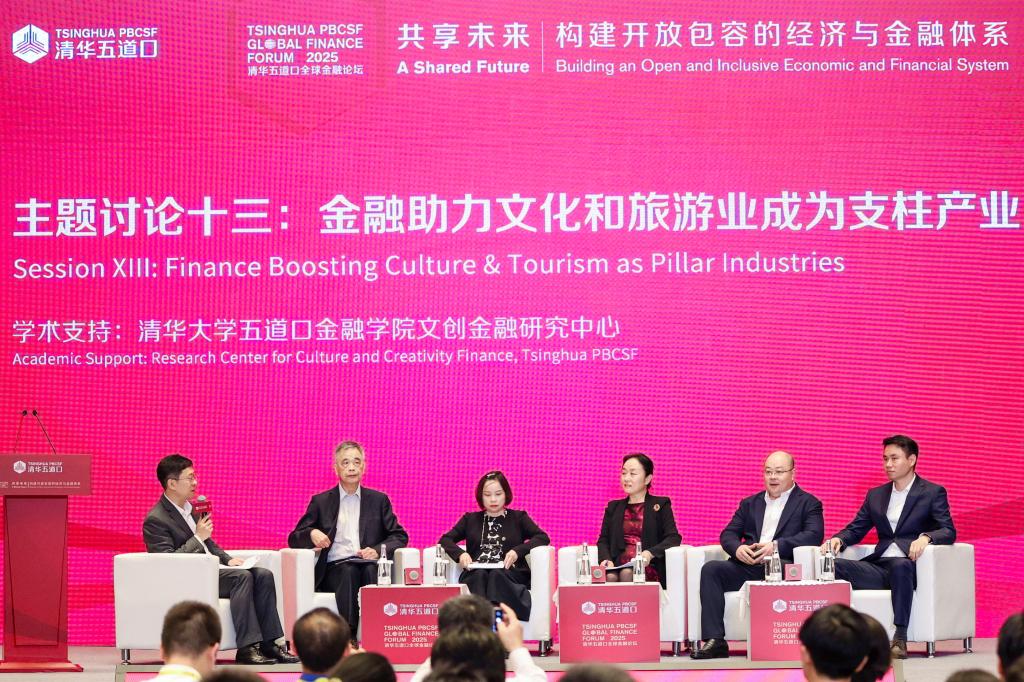
Photo: The roundtable discussion
The session adopted in a roundtable discussion format, featuring insights from prominent participants: Li Dongrong, Former Deputy Governor of the People’s Bank of China; Liu Hua, Director of World Intellectual Property Organization (WIPO) Office in China; Yu Chunling, General Manager of China Cultural Industry Investment Fund Management Co., Ltd.; Liu Peng, Deputy Party Secretary of the Party Committee and General Manager of China Animation Comic Game Group Co., Ltd; Fang Tengfei, Vice President of Tencent Cloud and Head of Tencent Smart Cultural Tourism. The panelists explored strategies to leverage financial tools for growth of culture and tourism industries. The discussion was moderated by Zhao Cen, Director of the Research Center for Culture and Creativity Finance, Tsinghua PBCSF.
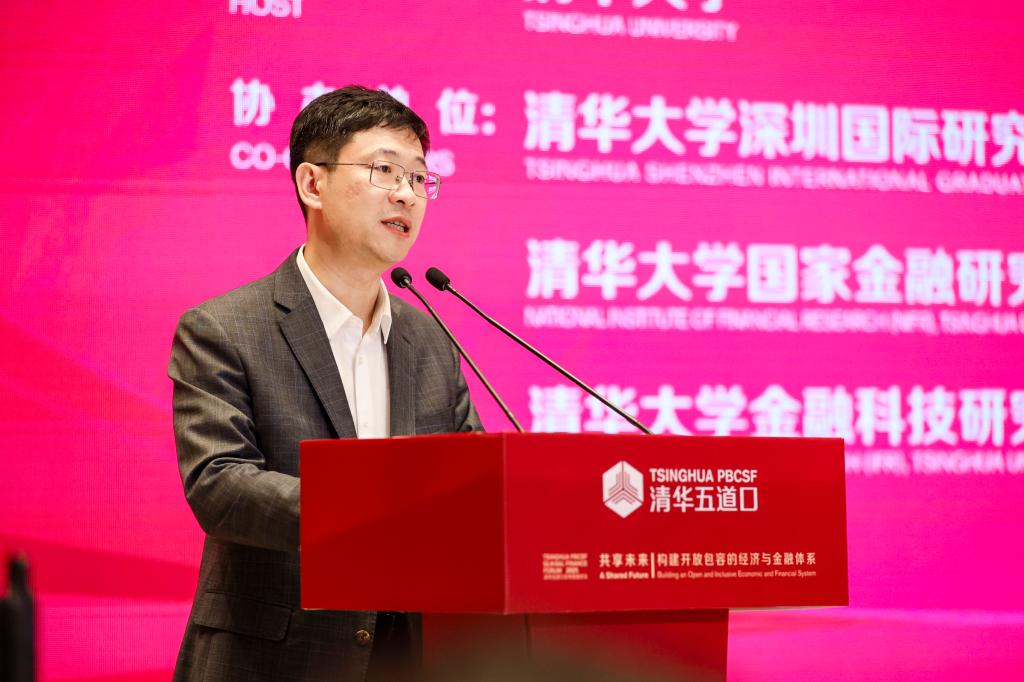
Photo: Zhao Cen, moderator of the roundtable discussion
Zhao Cen stated that the proposal to cultivate the cultural and tourism industries as a pillar industry fully demonstrates the strategic vision and determination of the CPC Central Committee, boosting market confidence. He pointed out that according to the data, China's cultural and tourism industries has a good start in 2025: during the Spring Festival and May Day holidays, both the number of domestic tourist trips and spending saw sustained growth. In the first quarter of 2025, revenue of above-designated-size cultural enterprises grew 6.2% year-on-year, with evident trends of industrial intelligence and digitization. From January to April, investment and financing activities in the sector rebounded, reflecting substantial growth potential. Zhao also noted challenges in boosting domestic demand and improving high-quality supply. Effectively leveraging policies, such as the large-scale equipment upgrade and trade-in of consumer goods and the service consumption and elderly care re-lending program to support the high-quality development of the cultural and tourism industries is a critical task.
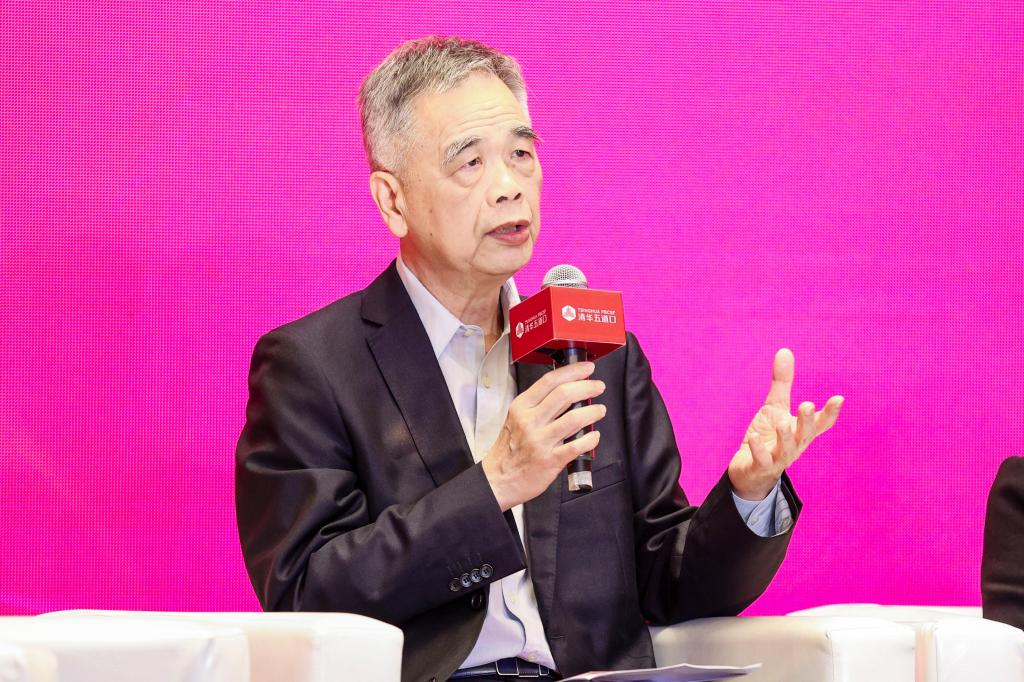
Photo: Li Dongrong
Li Dongrong noted that with China’s rapid economic development and social progress, the people’s demand for spiritual and cultural life has been growing. This requires the development of the cultural and tourism industries to keep pace. Opening up should not only help the world better understand China, but also enable China to deeply engage with global cultures, showcasing and disseminating the country’s outstanding cultural heritage while learning about others. The rise of culture and tourism industries as a pillar industry is an inevitable trend under high-quality economic development. The financial industry must recognize this phenomenon and improve its services to support the growth of culture and tourism industries.
Li Dongrong emphasized that there are two challenges in leveraging finance to empower the development of culture and tourism industries: on the demand side, enterprises and projects need to demonstrate their immediate value and future growth potential; on the supply side, the financial sector must discover value of these industries more efficiently. Only by addressing these challenges can finance allocate the resource efficiently and deliver better services to the sustainable development of the industries.
Digital technologies have become a key bridge connecting finance and industries, helping to establish support systems for financial products and services, such as asset evaluation, risk pricing, and payment settlement. Li Dongrong pointed out that the cultural and tourism industries are playing an increasingly prominent role in the national economy and shouldering important responsibilities. This presents both opportunities and challenges for the industry. Moving forward, it is necessary to strengthen policy research and formulation, promote implementation and interdepartmental coordination, and accelerate the establishment tailored investment and financing mechanism. Efforts should be made to encourage more investment from long-term and patient capital and more bank credit, which would help the cultural and tourism industries become an important pillar industry.
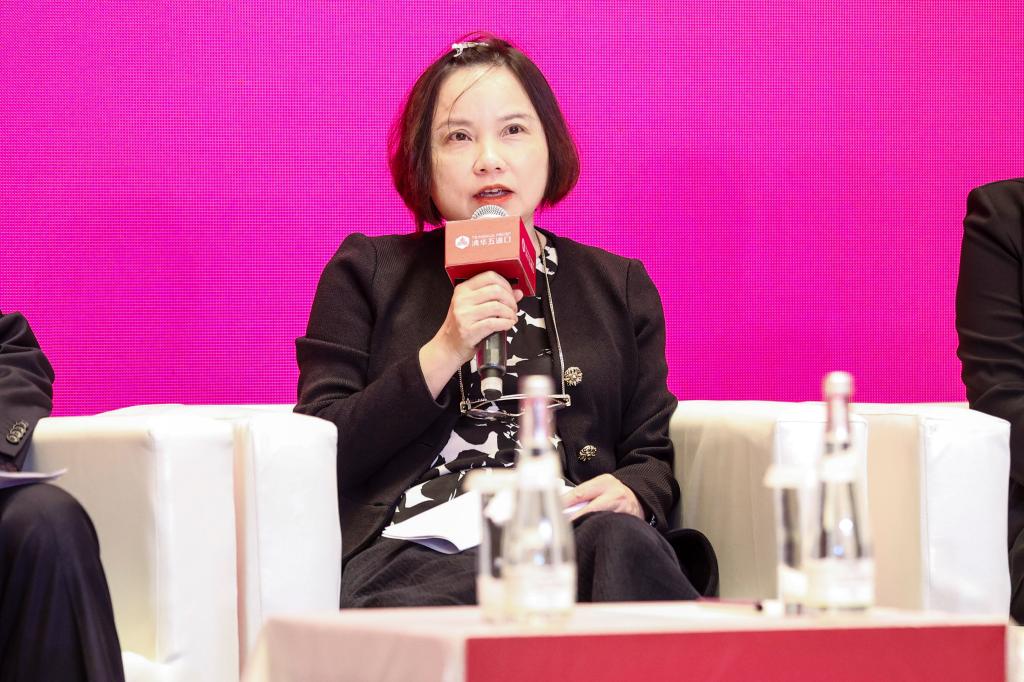
Photo: Liu Hua
Liu Hua stated that cultural and tourism industries hold significant development potential in terms of resource endowment, policy environment, market demand, and infrastructure. The sector’s integration process aligns with global trends in the creative economy. Liu Hua highlighted four key challenges in IP area: low IP awareness, inadequate protection mechanisms and protracted enforcement processes, regulatory gaps, particularly in AI-generated content ownership standards, and rights protection difficulties.
Liu introduced the service framework provided by the World Intellectual Property Organization (WIPO), including an international regulatory framework, a global IP registration system, alternative dispute resolution mechanisms including arbitration and mediation, capacity-building initiatives, and international cooperation platforms. These efforts aim to support a balanced, inclusive, dynamic, and future-oriented global ecosystem for the sector. WIPO is committed to strengthening collaboration with Chinese stakeholders to jointly advance IP value transformation, facilitate cross-border dispute resolution, and safeguard rights in digital environments.
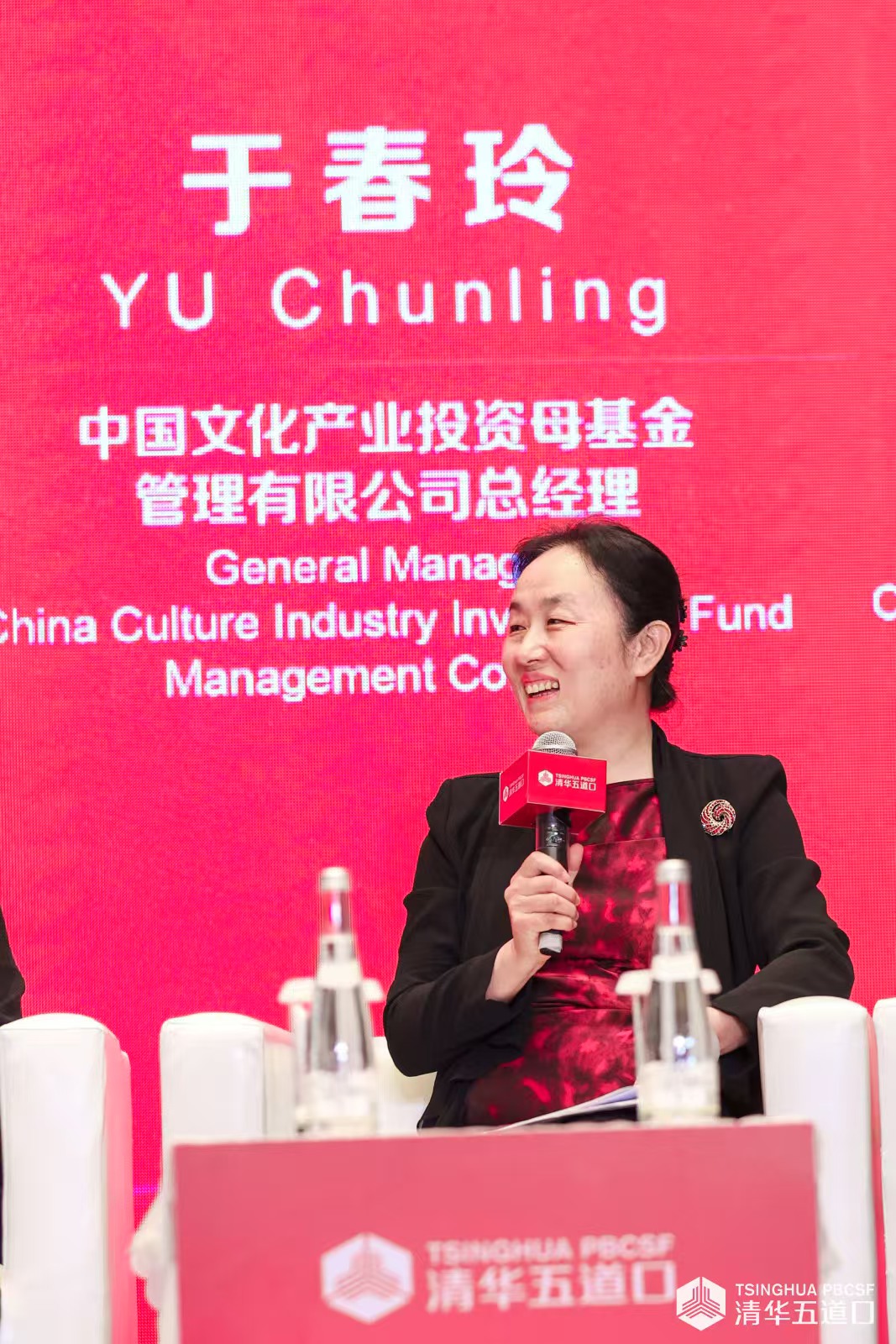
Photo: Yu Chunling
Yu Chunling asserted that the cultural and tourism industries possess the foundational qualities to become pillar industries, as evidenced by their economic contributions, industrial ripple effects, employment absorption capacity, and innovation potential. To fully unlock these industries’ potential as economic pillars, sustained efforts should be made: leverage their role in stimulating consumption, enrich public cultural life with a people-centered approach, cultivate new growth drivers tailored to regional characteristics, create more employment opportunities, and promote culture-tourism integration through technological innovation.
Yu Chunling identified five challenges in obtaining financial support for the culture and tourism industries: firstly, the incomplete transition from public-service orientation to market orientation, with competitiveness needing enhancement; secondly, the lack of standardized pricing mechanisms and valuation frameworks, which dampens investor enthusiasm; thirdly, structural imbalances between investment supply and demand; fourthly, investors' limited capacity to identify the value of new quality productive forces in the sector; last, the challenge of balancing rapid technological advancement with coordinated material and spiritual civilization development.
Yu stated that China Cultural Industry Investment Fund (CCIIF) aims to foster collaboration among culture, tourism, and finance, guiding comprehensive market-oriented funds to increase cultural investments, encouraging private institutions to establish specialized cultural-tourism funds, facilitating regional fund establishment with key local governments, and directing investments into national priority areas, industry leaders and major cultural infrastructure projects.
She emphasized the need to enhance top-level design with forward planning, ensure government fiscal support while maintaining reasonable return expectations, strengthen coordination among financial instruments, and encourage concentrated and sustained deployment of government-guided funds. Aligning with the conference theme, Yu Chunling made some suggestions. She suggested that we should adopt open-minded, inclusive, and collaborative approaches to balance five relationships, which includes government-market synergies, cultural-tourism integration, mutual empowerment between culture and technology, supply-demand interactions and harmonization of social and economic returns on investments.
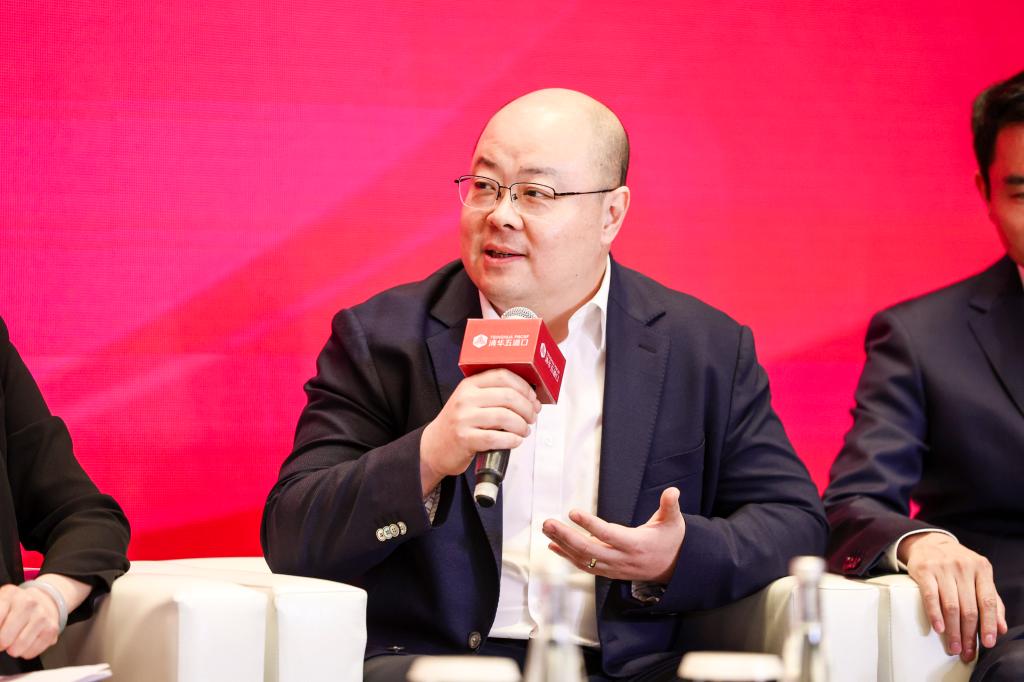
Photo: Liu Peng
Liu Peng pointed out that the key to making the cultural and tourism industry a pillar industry lies in supply-side innovation, which requires empowering economic and social development through original IP. Regarding the animation and gaming industry, Liu Peng highlighted two core issues: First, the lack of competitiveness in original IP, with domestic creative capacity needing improvement, and derivative development lagging far behind content production, leading to a single revenue stream and extended payback periods. Second, an unbalanced investment ecosystem, where the industry's long investment recovery periods result in platform companies and the government being the primary investors, with low participation from private capital.
On how the industry can better achieve integration and development, Liu Peng proposed two innovative measures: first, establishing a supply-demand matching platform by setting up an animation industry guidance fund and introducing professional management institutions to bridge the "communication gap" between artists and investors, thereby reducing investment risks; second, strengthening full-chain intellectual property protection by creating a specialized valuation system and rapid dispute-resolution channels for the cultural and creative sectors, enhancing the predictability of IP commercial value. Additionally, Liu Peng suggested building a government-led, socially funded AI database and language corpus for traditional Chinese culture to address issues like the chaotic use and lack of proper labeling of traditional cultural elements in AI-generated content, thereby providing foundational technical support for content innovation.
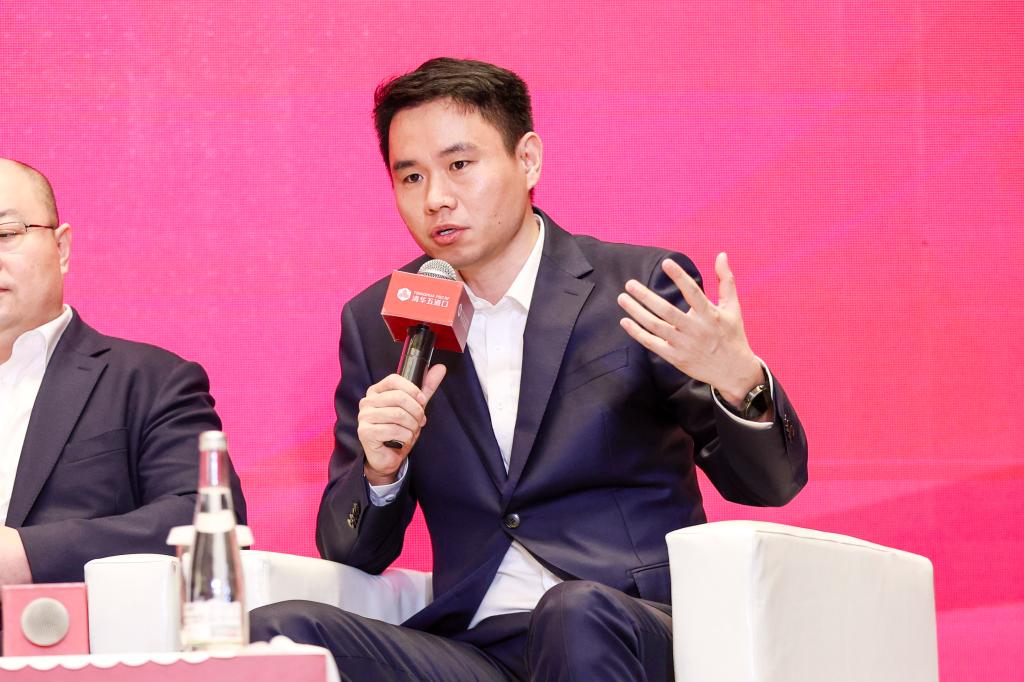
Photo: Fang Tengfei
Fang Tengfei believed that the cultural and tourism industries can stimulate domestic demand and create more employment opportunities, while effectively communicating traditional Chinese culture for both foreign audiences and the general public, thereby fostering a more open and inclusive social culture.
He emphasizes that technology serves as the adhesive, lubricant, and catalyst for achieving the goal of "using culture to shape tourism and tourism to showcase culture." Regarding culture-driven tourism development, digital technologies can revitalize cultural elements by making them "come alive." In terms of tourism-enhanced cultural promotion, digital tools enable deeper exploration and innovative interpretations of local culture, while tourism provides tangible scenarios that bring cultural heritage to life.
Fang pointed out that the greatest challenge lies in achieving organic integration and balance between technology and cultural tourism. Products lacking cultural depth risk becoming mere technical spectacles, whereas excessive emphasis on cultural authenticity may result in pedantic, documentary-style works with low market appeal. He predicted artificial intelligence (AI) will bring four transformative changes to these industries: AI could potentially resolve the "impossible trinity" of balancing price, customization, and service speed in tourism; advancements in Multimodal Large Model technology will significantly reduce production costs for performance-based content; AI will replace numerous repetitive and cognitive positions; AI will empower managers to dynamically adjust operations, predict outcomes in real-time, and automatically optimize management approaches.
Fang suggested addressing AI's rapid development by delivering tangible achievements through scenario-based pilots and deepening the application of digital technologies across the entire value chain - from investment and construction to operations.
The 2025 Tsinghua PBCSF Global Finance Forum was held in Shenzhen on May 17-18. With the theme " A Shared Future: Building an Open and Inclusive Economic & Financial System", the forum established a high-level dialogue platform for global policymakers, economists, and financial leaders to pool wisdom and explore collaborative solutions.
Source丨Research Center for Culture and Creativity Finance, Tsinghua PBCSF, Forum Working Group
Text丨He Yingchun
Reviewed by丨Zhang Wuyi, Cui Li